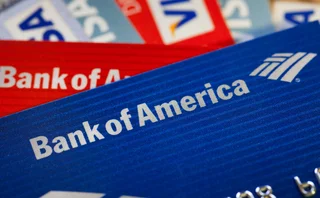Users Eye Proposed Project Boat Fees
LONDON—European trade reporting utility Project Boat is approaching potential bank clients with "indicative" commercial terms to use its reporting service and to subscribe to feeds of trade data collected from its nine member banks, ahead of a planned November launch, sources tell DWT's sibling newsletter Inside Market Data.
Sources familiar with the situation say that the terms being proposed include an annual charge of $50,000 to use Boat's trade reporting facilities. This fee is subject to a rebate of up to 40 percent depending on the quantity and quality of data contributed, and a fee of around $200 per user per month to receive a feed of aggregated data from institutions that publish their trades via Boat. These "indicative" terms are intended to represent a starting point for negotiations, sources say.
However, officials from Boat's commercial partner, UK-based data vendor Markit, decline to comment on specific details of the pricing, and say that "the terms have not as yet been finalized."
The $50,000 annual contribution fee is designed to cover the operational costs of running the utility and to "make sure Project Boat has serious partners on board," rather than to generate profits, one source says. However, some say that the fees seem considerable given that other organizations, such as GL Trade and Chi-X, have committed to collecting and publishing data free of charge to ease compliance with the European Union's Markets in Financial Instruments Directive (Mifid).
Access to Project Boat's data at $200 a month makes it more than twice as expensive as a real-time Level 2 feed from any major European exchange, says one source. While Boat's data will be pan-European and therefore potentially offer much broader coverage than any individual exchange, others are concerned that the data will not be of a similar quality, and say that it is too early to judge whether $200 represents good value without a better understanding of the data.
"We need to qualify and quantify exactly what it encompasses. At the moment we don't know what the offering is, so we can't judge how much it would be worth," says David Berry, global head of market data at Barclays Capital in London.
Another source also expresses concern about the completeness of the data. "Do the nine banks have an obligation to publish all of their equities data to Boat?" asks this source, who says the data's value would be undermined without commitments by contributing banks to use the reporting facility extensively.
Others seem less concerned about Mifid's pre- and post-trade transparency obligations and more focused on best-execution requirements. "What we're looking for at the moment is something to give us a Mifid best-execution tool," says a third source. As yet, it is unclear how Boat will address Mifid's best-execution requirements, which also apply to non-equity instruments. This source says that the task of storing data to prove best execution across multiple asset classes is a much greater challenge than the transparency obligations that Boat intends to initially address.
Even if Project Boat succeeds in offering a real-time, pan-European datafeed, potential clients may still face symbology challenges when integrating the data into downstream applications built around specific, proprietary code systems, such as the Reuters Instrument Codes (RIC). "It's not easy to replace your feed with another. Reuters is strong because a lot of applications are RIC-based," the third source says.
Jean-Paul Carbonnier
Only users who have a paid subscription or are part of a corporate subscription are able to print or copy content.
To access these options, along with all other subscription benefits, please contact info@waterstechnology.com or view our subscription options here: http://subscriptions.waterstechnology.com/subscribe
You are currently unable to print this content. Please contact info@waterstechnology.com to find out more.
You are currently unable to copy this content. Please contact info@waterstechnology.com to find out more.
Copyright Infopro Digital Limited. All rights reserved.
As outlined in our terms and conditions, https://www.infopro-digital.com/terms-and-conditions/subscriptions/ (point 2.4), printing is limited to a single copy.
If you would like to purchase additional rights please email info@waterstechnology.com
Copyright Infopro Digital Limited. All rights reserved.
You may share this content using our article tools. As outlined in our terms and conditions, https://www.infopro-digital.com/terms-and-conditions/subscriptions/ (clause 2.4), an Authorised User may only make one copy of the materials for their own personal use. You must also comply with the restrictions in clause 2.5.
If you would like to purchase additional rights please email info@waterstechnology.com
More on Trading Tech
After acquisitions, Exegy looks to consolidated offering for further gains
With Vela Trading Systems and Enyx now settled under one roof, the vendor’s strategy is to be a provider across the full trade lifecycle and flex its muscles in the world of FPGAs.
Enough with the ‘Bloomberg Killers’ already
Waters Wrap: Anthony interviews LSEG’s Dean Berry about the Workspace platform, and provides his own thoughts on how that platform and the Terminal have been portrayed over the last few months.
BofA deploys equities tech stack for e-FX
The bank is trying to get ahead of the pack with its new algo and e-FX offerings.
Pre- and post-trade TCA—why does it matter?
How CP+ powers TCA to deliver real-time insights and improve trade performance in complex markets.
Driving effective transaction cost analysis
How institutional investors can optimize their execution strategies through TCA, and the key role accurate benchmarks play in driving more effective TCA.
As NYSE moves toward overnight trading, can one ATS keep its lead?
An innovative approach to market data has helped Blue Ocean ATS become a back-end success story. But now it must contend with industry giants angling to take a piece of its pie.
BlackRock, BNY see T+1 success in industry collaboration, old frameworks
Industry testing and lessons from the last settlement change from T+3 to T+2 were some of the components that made the May transition run smoothly.
Banks seemingly build more than buy, but why?
Waters Wrap: A new report states that banks are increasingly enticed by the idea of building systems in-house, versus being locked into a long-term vendor contract. Anthony explores the reason for this shift.







